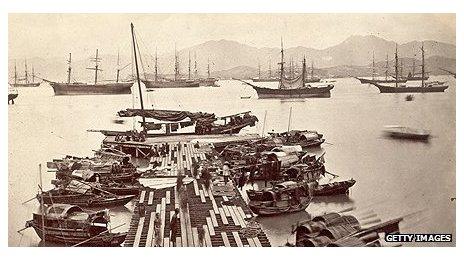Hong Kong protest: What is mainland China hearing?
- Published
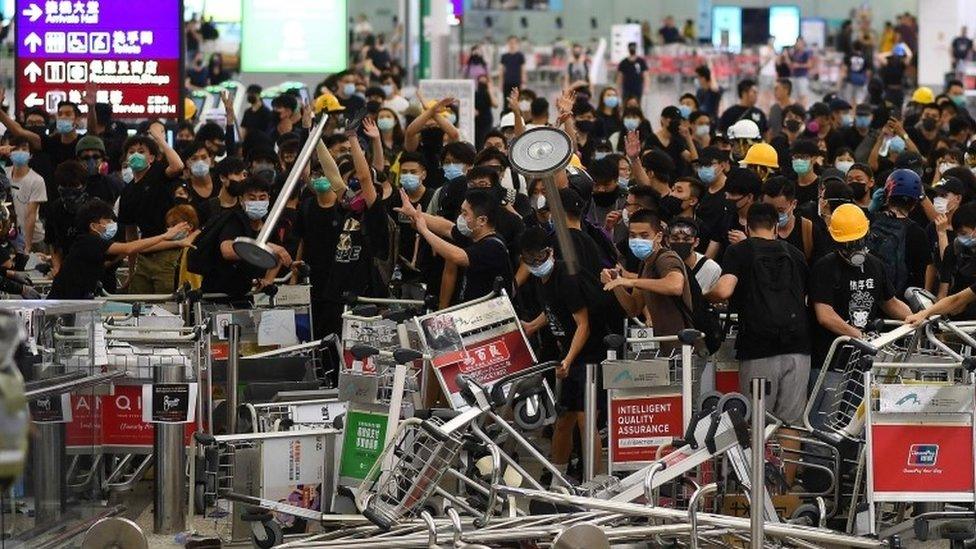
Since protests against a proposed extradition bill began, Hong Kong has drawn global attention. But on the Chinese mainland, it took a while for the story to be picked up, and people have been fed a selective and sometimes misleading narrative.
State media have dismissed the protesters as a small and violent group of separatists, enabled by foreign powers and disliked by locals. In recent days, state media have intensively distributed the most violent moments of the incident, making a hero of a mainland journalist who was beaten up at the airport.
Here's how reporting has evolved in China.
Controlled coverage
If you Google "Hong Kong" in Chinese, the first term that comes up is "Hong Kong protest", linking to coverage by both Western media such as the BBC and the New York Times and state media like CCTV.
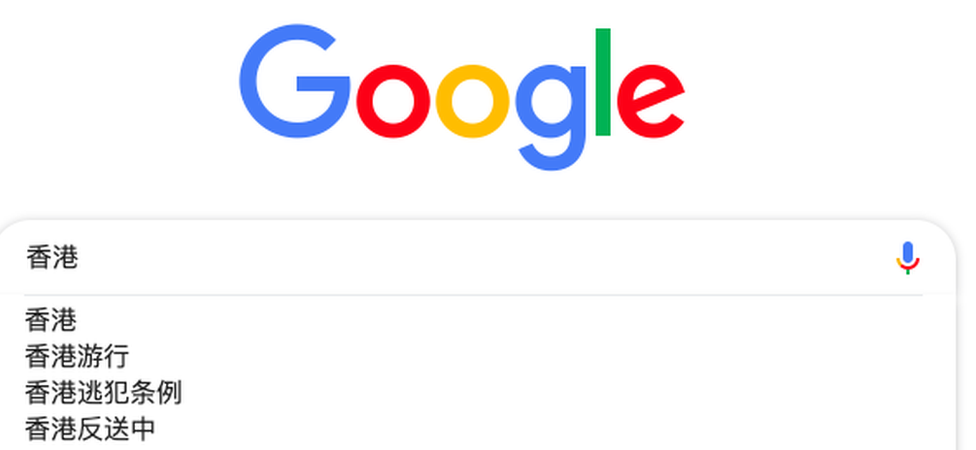
But access to Google is blocked in China, and if you look on Baidu, the filtered search engine mostly used on the mainland, you get "Hong Kong flights back to normal" followed by "what has happened in Hong Kong recently". The results led on what China's ambassador to the UK said on the issue recently and the losses protesters have caused by paralysing the airport.

When the demonstrations first erupted on 9 June, China's heavily controlled state media kept silent, except for reports on pro-government rallies and the foreign ministry's condemnation of "foreign interference". One headline in the nationalist Global Times read: "HK parents march against US meddling.", external".
In early July, media published their first stories about the demonstrations after protesters broke in to the Legislative Council, Hong Kong's parliament. Xinhua, the state-run news agency, criticised "lawless acts that caused mass destruction, which was shocking, distressing and infuriating", citing the Hong Kong Liaison Office of the central government.
A second round of coverage on the protest rolled out when the Liaison Office was besieged in late July.
The official line has highlighted moments of violence, with words like clashes, mobs and riots, fanning mainland public anger.
Over the past week, coverage has focused on protesters throwing petrol bombs and causing injuries to police.
Much of the attention in Hong Kong media has been on a female protester whose eye was injured during clashes.
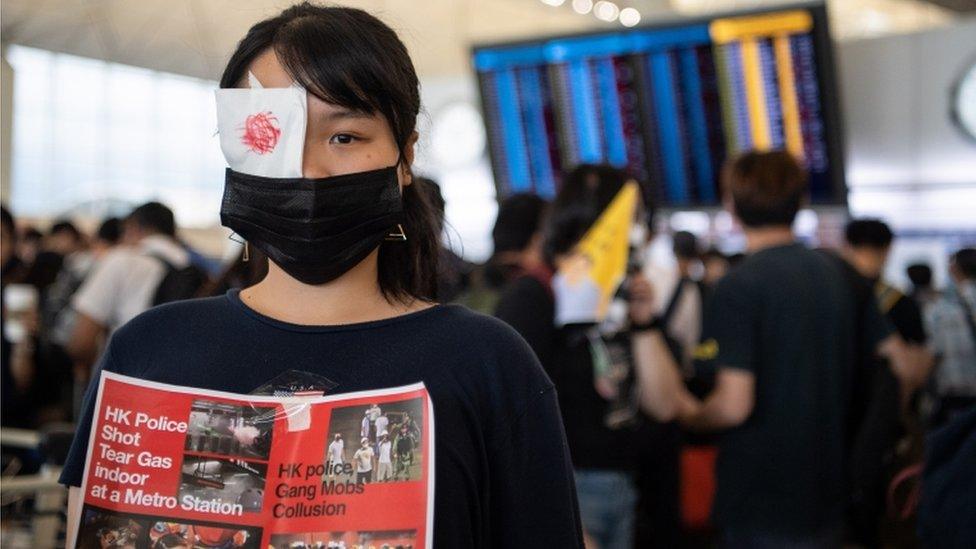
Eye patches have been adopted as a symbol of protests
Both sides were hurling projectiles, so it is unclear whether her injury was caused by police or demonstrators. Protesters blame police, but CCTV reported on Monday, with a firm tone, that the injury was caused by a fellow protester. It even posted a photo which showed a woman counting cash, external, and reported suggestions that this was the same woman and a paid provocateur.
Videos of armed police assembling in the neighbouring city of Shenzhen, on the mainland, were circulating by state media as well, as well quotes from the Chinese government's Hong Kong and Macao Affairs Office warning that the movement had laid the foundations for "terrorism". Some have seen this as preparing the public for a potential crackdown by Beijing, even by armed police.
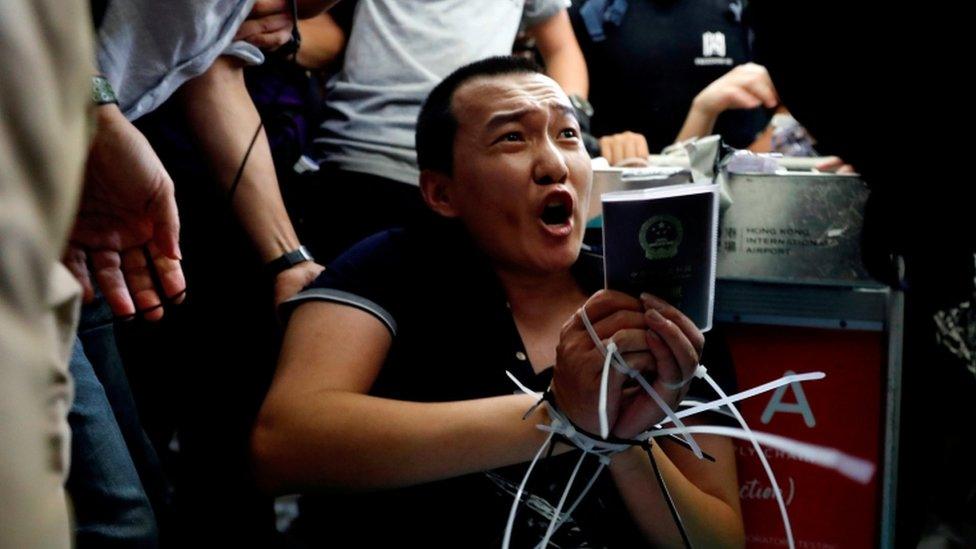
Footage of a Global Times reporter being attacked at the airport has played widely in China
A sit-in that shut down the city's airport led to unprecedented chaos on Tuesday night when two mainlanders were tied up and beaten by people around them.
One was a Global Times reporter who shouted out "I support Hong Kong police". The reporter, Fu Guohao, is being named a "hero" on the mainland, external.
One online comment said police should learn from how the Communist Party cleared the 1989 protests "with an iron hand". That's a reference to the tanks and armed forces sent into Tiananmen Square, killing hundreds, if not thousands, of the participants.
State media have also been reflecting the government's stance alleging "foreign interference", especially from the US and UK, despite a lack of evidence.
They ran articles citing Liu Xiaoming, the Chinese ambassador to the UK, who on Thursday urged countries to stop interfering and "conniving in violent offences".
What do mainlanders make of the protests?
China has a wealth of independent bloggers posting on the likes of WeChat and Weibo. Their opinions usually only reach a limited audience if they pick up on a sensitive topic, as such content can be deleted within hours.
Last week, one article on WeChat briefly went viral as it provided detailed timelines and historic context of how the issue has evolved, something state media tend to avoid. For example, it argued that the extradition bill wasn't a good solution to the legal case for which it was suggested - where a Hong Kong man killed a woman in Taiwan but fled to his home city.
The post was removed by a large-scale Chinese censorship operation after a few hours.

A guide to the Hong Kong protests
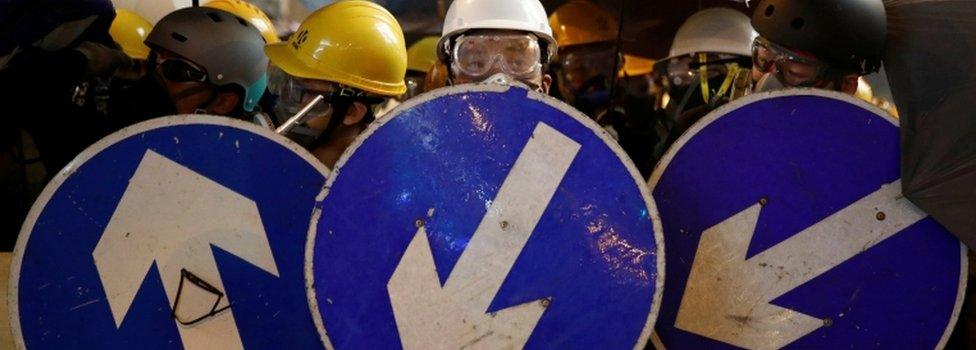
Summary of the protests in 300 words
All the context you need on the protests
The background to the protests in video
More on Hong Kong's history
Profile of Hong Kong leader Carrie Lam

There are ways of getting around the Great Firewall which controls what people in China see online. The country's better-connected youth have been consuming news from external channels with the help of VPNs. What do they make of what they're reading?
Despite reading both domestic and foreign news, one mainland Chinese youth, who asked not to be identified, was still largely unsympathetic, and said the ultimate reason behind the unrest was not political, but economic.
"The fastest-growing period of Hong Kong has already passed, so the young people there find no way to climb up the social ladder. They feel choked in an environment of expensive housing, sweltering climate and a neighbour [the mainland] that's becoming richer and richer," he said.
"The young people in Hong Kong look down upon the mainlanders, and at the same time are afraid of us because they don't want us to overtake them," another mainlander said under the condition of anonymity.
He and his friends rarely talk about the ongoing demonstration, he said, because the city is just not important to them. "If a protest breaks out in Beijing or Shanghai, it's going to be much more worrying."
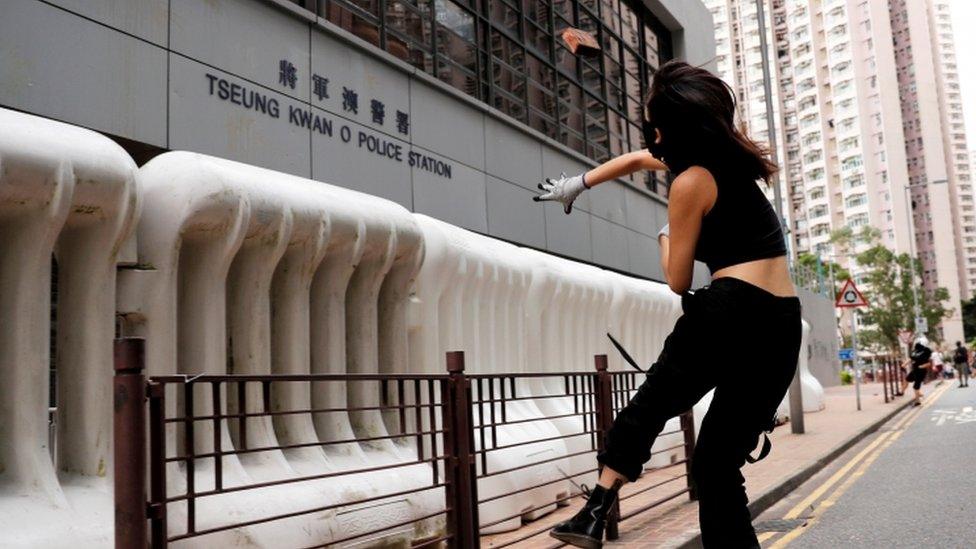
Sympathetic mainlanders said violent acts diminished their support for the protests
That's a fairly typical mindset of mainlanders who have been told for generations that economic growth outweighs other concerns.
Some have been using the term "useless youth," a disdainful nickname that emerged in the Occupy Central movement in 2014 for protesters seen as contributing nothing to society but complaints.
But one mainlander told us she felt the term resulted from a misinterpretation. She said Hong Kong's youth had their own dreams and that there should be more open communication between the two regions.
And what of mainlanders who now live in Hong Kong?
Many have expressed support for the protests. One man who has lived in Hong Kong for more than a decade said he joined the 9 June demonstration and donated to a crowdfunding project for a global ad campaign of the demonstration.
But he said he disliked some of the more extreme or violent actions of some protesters, and was critical of Hong Kong media, saying they could also be biased.
Another mainlander in Hong Kong said they understood the "fear, anger and doubt of the protesters, but beating people up is not forgivable. If the ones who got hit in the face are criminals, violence turns the demonstrators into criminals as well."
- Published14 August 2019
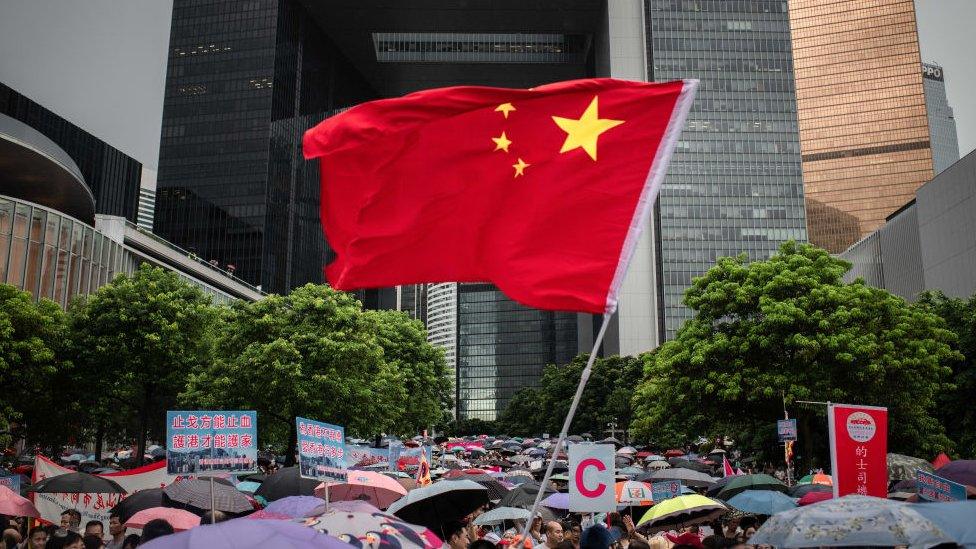
- Published21 May 2020
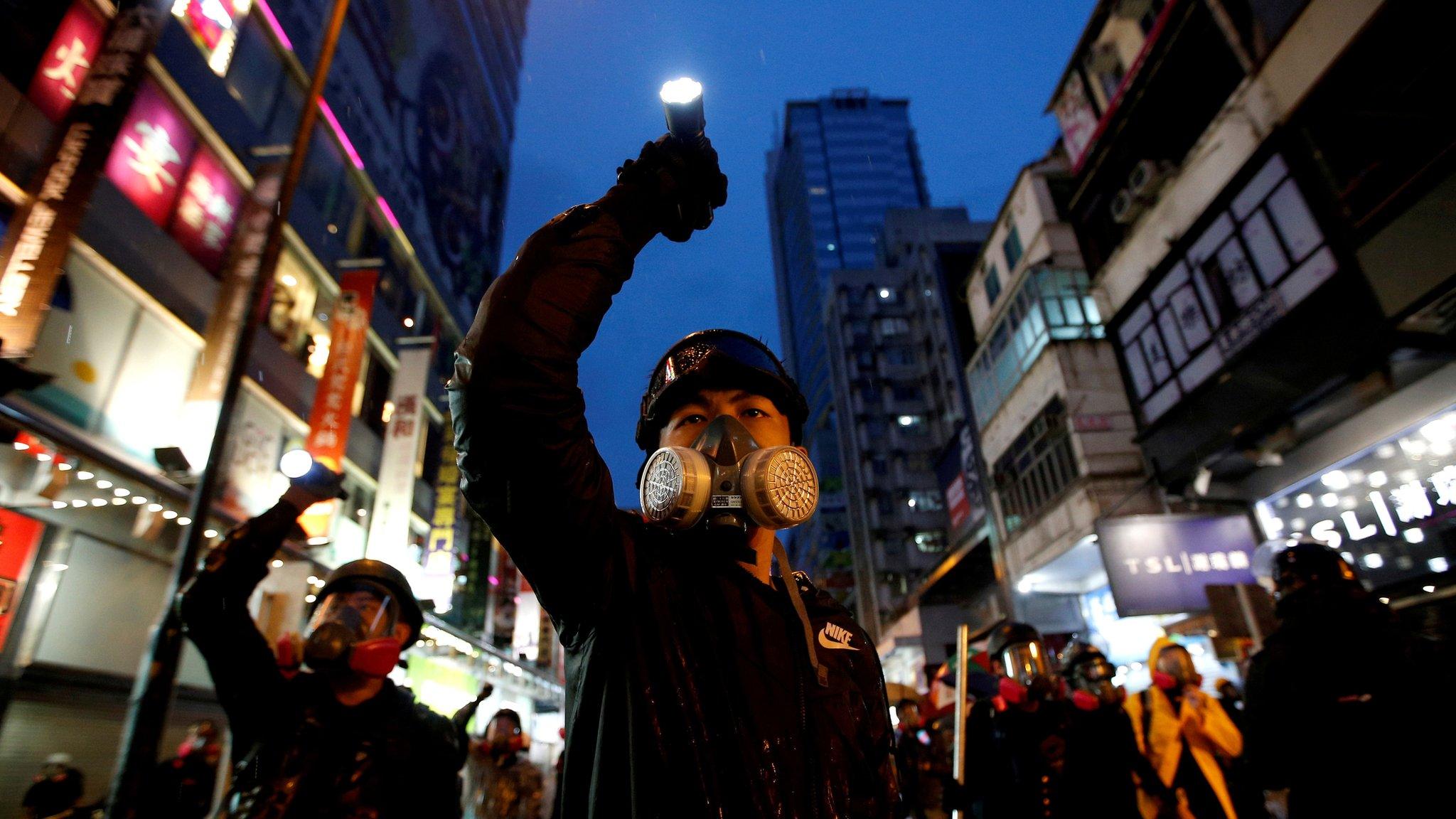
- Published24 June 2019
